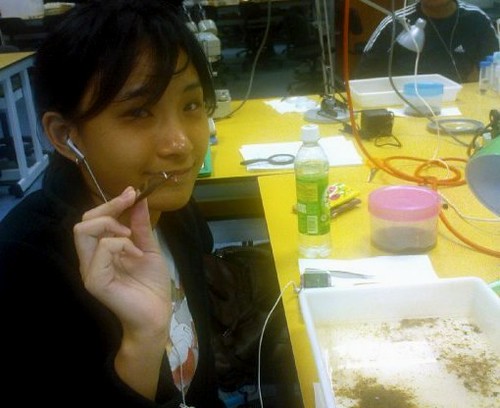Job Opportunities in freshwater ecology with the Ecological Monitoring, Dynamics and Informatics (EMID) group, Tropical Marine Science Institute (TMSI), National University of Singapore.
EMID research revolves around a cross-disciplinary, quantitative approach with a strong focus on operations and management, towards the overarching goal of sustainable resource management.
Much of research undertaken is supported through contracts with local governmental agencies to monitor and assess the ecological status of Singapore’s aquatic systems, which provides a data- and opportunity rich environment for strategic and fundamental research.
The Inland Waters Cluster applies freshwater research through the development of assessment tools and environmetrics for ecological appraisal and prediction.
Research areas include:
- Protocol, design and operation of a National Biomonitoring Programme in Singapore.
- Quantified characterisation of habitats and biotic communities of freshwater systems.
- Translation of biological response to environmental conditions to ecological and water quality indicators, thresholds and guidelines.
- Ecological evaluation of environmental change following habitat creation or restoration.
- Prediction of effects of changes in land-use and climate through eco-hydrologic modelling and environmental impact assessment.
We are currently seeking to fill a number of research positions to meet emerging challenges and opportunities in this area of rapid growth. Successful applicants will increase the capacity of core expertise in freshwater biomonitoring in Singapore at TMSI, NUS developed through targeted programmes over the last five years.
Experience in freshwater research in South East Asia would be preferable. However, applicants with relevant skills in quantitative ecology and/or freshwater research elsewhere will be considered.
We are recruiting Research Assistants and Research Associates to join our research teams.
Ideal candidates will have experience in freshwater ecological field work, quantified sample collection methods, data handling, analysis and interpretation of ecological data. The primary responsibilities of these positions are:
- Field surveying of freshwater habitats
- Collection of aquatic invertebrates and water samples
- Processing of samples and parataxonomy of freshwater invertebrates
- Data handling and quantitative ecological analysis using statistical techniques
- Interpretation of ecological data and production of high quality scientific reports
- Publication of resultant research papers in peer-reviewed journals
- Assisting in supervision of part-time staff and interns
- Supporting laboratory technicians in laboratory housekeeping and maintenance
- Depending on experience, candidates will have opportunities to design and implement experiments to address research questions within the scope of the Inland Waters cluster.
Requirements
- The minimum qualification for research assistants is an undergraduate degree in a relevant subject area.
- For the Research Associate positions, applicants should have, at minimum, a MSc in a relevant subject area with two years relevant post-qualification experience.
- Proficiency in oral and written English
- Experience of ecological fieldwork and parataxonomy. Experience in freshwater ecology is preferred but training in field methods and identification of taxa will be provided.
- A good general knowledge of aquatic ecology
- Proficiency in Microsoft Office applications
- A sound background in quantitative assessment methods and use of statistical software (such as SAS, R, SPSS, Statistica)
- Self-motivated and able to work independently as well as a with other team members.
- A valid Singapore Class 3 driving license (or equivalent for international applicants willing to obtain a local license) is highly desirable.
Salary
Salary will commensurate with qualifications and experience. Unless otherwise specified, appointment is renewable annually subject to performance.
Closing date
Applications for these positions will be reviewed on 17th June 2013 after which shortlisted candidates will be invited for interview. We also welcome speculative applications throughout the year. Please see the TMSI website for current vacancies: http://www.tmsi.nus.edu.sg/view/joblisting
Contact
Interested candidates are invited to email their resume and cover letter FAO Dr. Esther Clews to tmsec@nus.edu.sg.
Please indicate in the subject heading the position applied for with Inland Waters, EMID e.g. “Research_Assistant_Inland_Waters_EMID”.
Only short-listed candidates will be notified.









